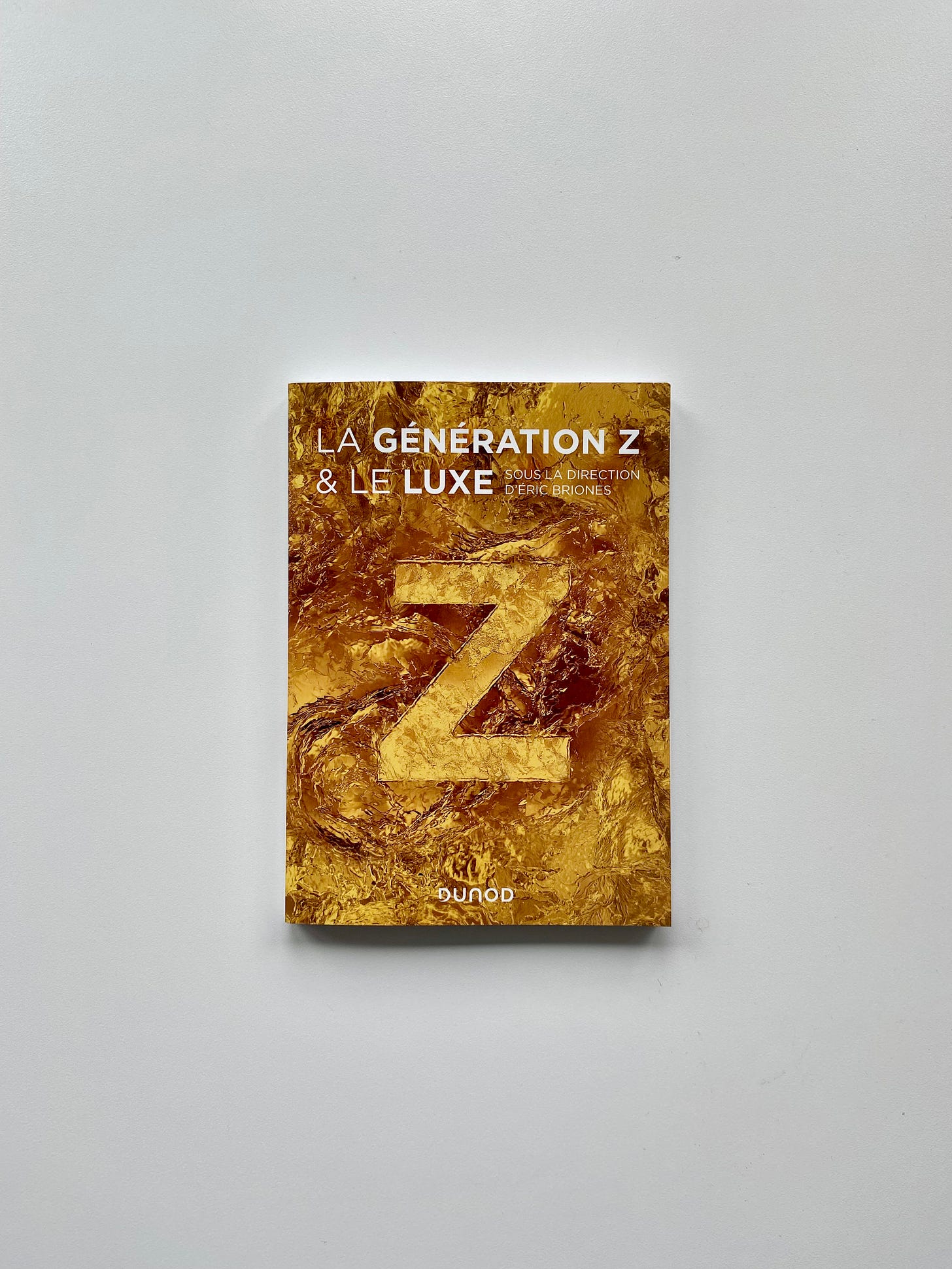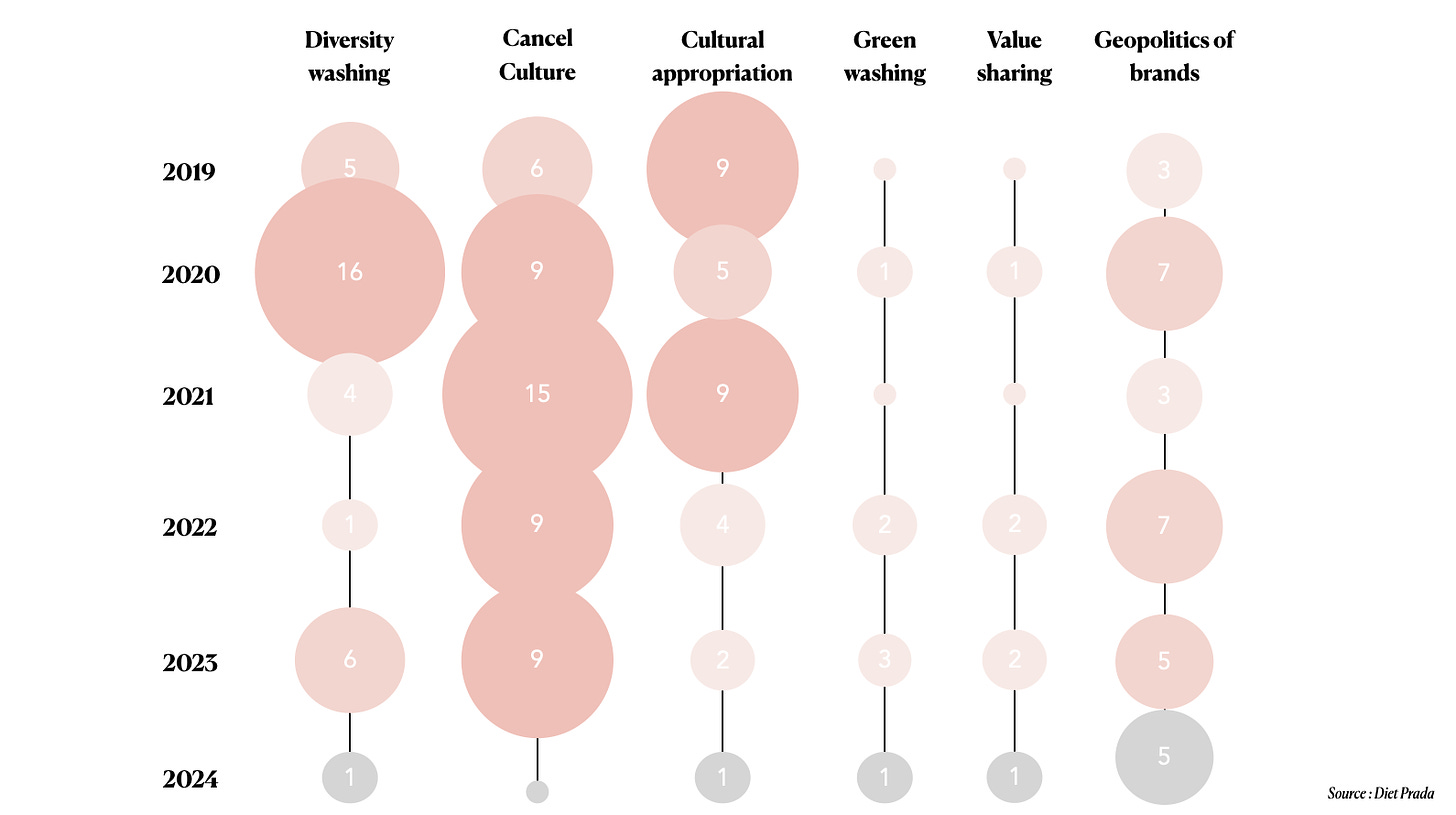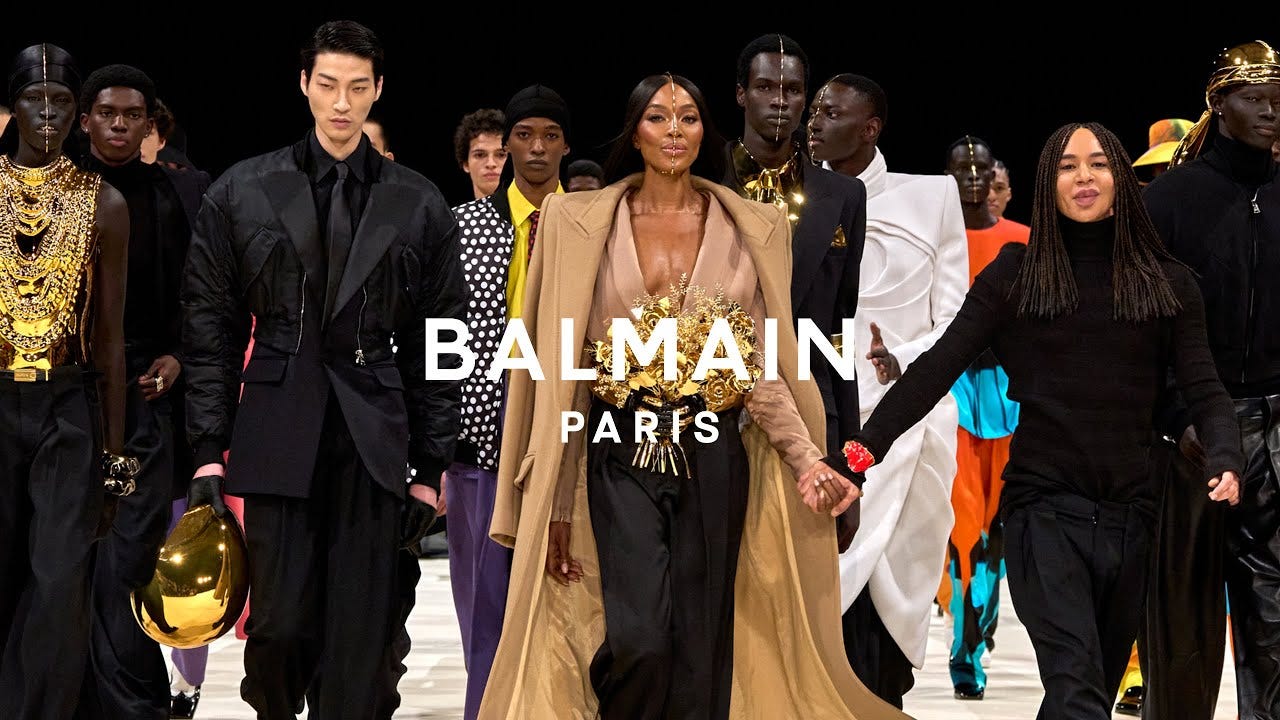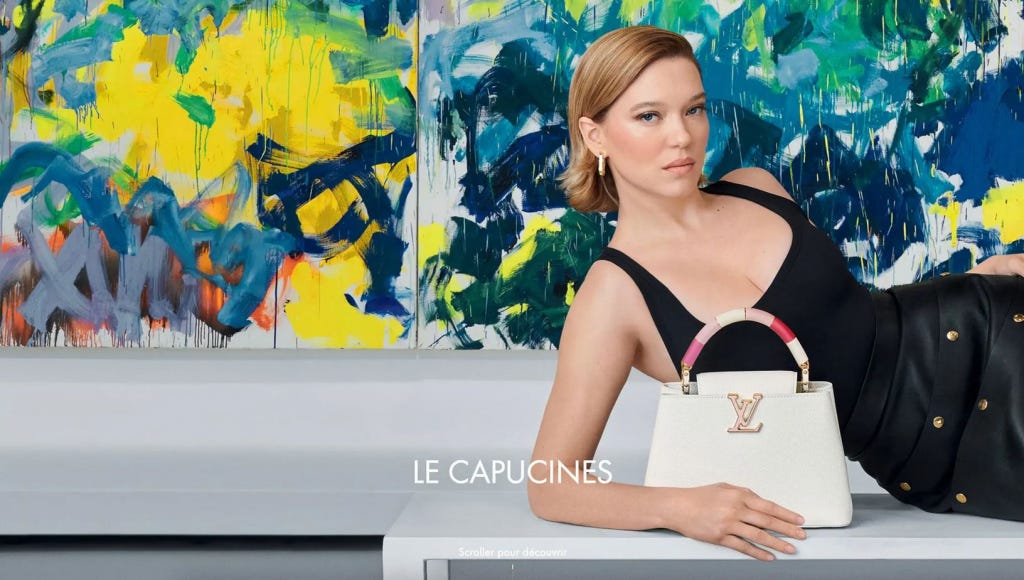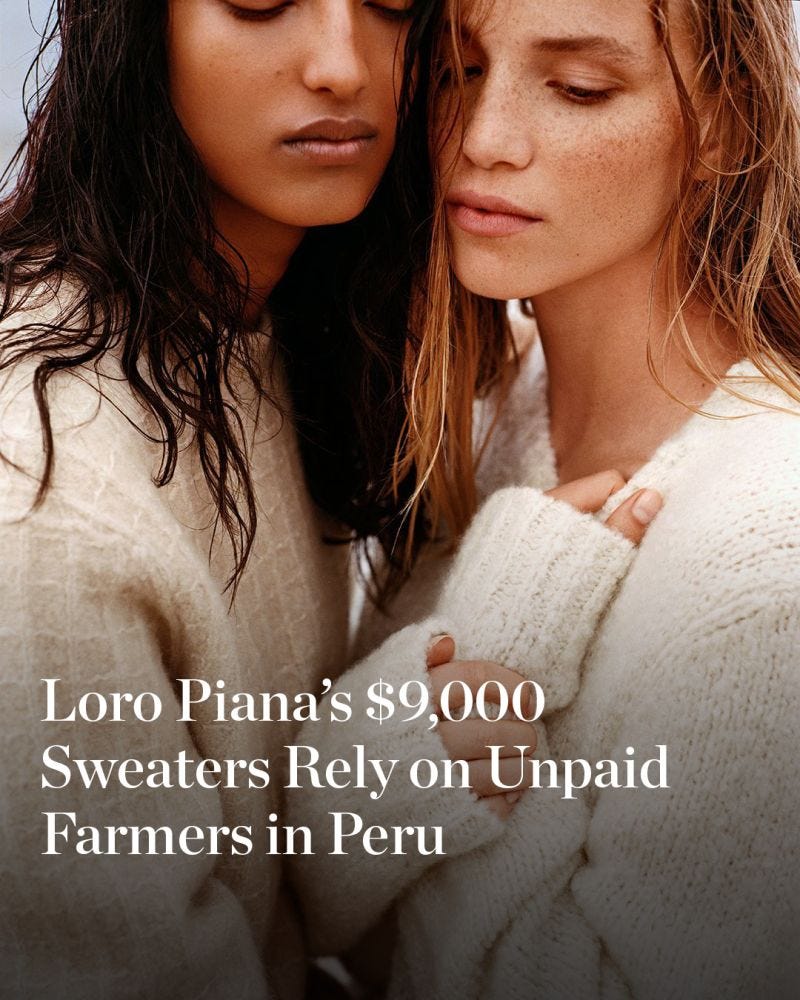Welcome to La Monthly Method. In my last analysis, Met Gala on Black Style: Superfine or Superflop? published in The Sociology of Business, I wrote on how to move from creating brand affinity to managing the brand context. Here, I look into the boycott risk factors for brands and how to address them considering local sensitivities. I’m pleased to answer any questions or comments!
This article is a preview of the method I shared on the book Generation Z and Luxury directed by
that was released last week. Find me on Instagram and Linkedin for updates and events.For the past 5 years, luxury Houses have been evolving in a permanent-crisis context: pandemics, climate crisis, Russo-Ukrainian war, Israeli-Palestinian conflict. Under the pressure of public opinion, they ask themselves: do they have a role to play?
According to a study we conducted with Havas among aspirational luxury clients, 50% of GenZ expect that the Houses speak out on social issues. Compared to other generations, the risk of luxury boycotts is reinforced with the arrival of GenZ : 88% of them would be ready to boycott a House if it took a position contrary to their convictions. This is 31% more than Millennials and 76% more than Baby Boomers1.
So how can we limit the risks of boycott Z? How can luxury convey the dream for everyone considering that this generation both insists on brands taking a position while being ready to boycott if they chose the wrong issue or the wrong side?
Symptoms of luxury boycotts in 2024
Using the Instagram account
, a reference when it comes to alerting the public on these issues, we see a sharp increase in audience sensitivity from 2020, a correlation with the death of George Floyd and the rise in polarized debate around representation.When we analyze the criticisms made about luxury, we find six risk factors2:
Boycott risk factors in luxury. Source : The Salmon Consulting, Diet Prada
1/ “Diversity washing” generates the most negative conversations associated with luxury. It involves projecting an image of diversity and social responsibility for commercial purposes, rather than truly committing to these values.
2/ “Cancel Culture” aims to publicly denounce individuals, groups or institutions responsible for acts, behaviors or comments perceived as unacceptable with a view to ostracizing them. For example the comments of John Galliano or the presence of Alexander Wang at NYFW after allegations of sexual misconduct drew large public reactions.3.
3/ Cultural appropriation concerns the use of material or immaterial elements of one culture by members of another culture like Balmain accused of plagiarizing Sarah Diouf in their fall/winter 2024 collection4.
Cultural appropriation is assimilated also to the looting of artists and their works. It was embodied more recently in the debates on the restitution of cultural property to States or the criticism surrounding the Louis Vuitton “Le Capucine” campaign which used a painting by Joan Mitchell as a decoration without the authorization of the foundation5.
4/ “Green washing” corresponds to the use of an ecological argument in a misleading, incomplete or false way, such as Mugler x H&M. A crisis factor that exists but remains proportionally weaker.
5/ Fair remuneration. Less quantifiable, the question of sharing value has emerged, with the inflation of luxury prices, such as Loro Piana accused of using unpaid Peruvian labor for knitwear costing $12,000.
6/ The geopolitics of brands. An issue faced by Zara after Internet users highlighted the links between the images of its campaign and the situation in Gaza. More recently Adidas faced a similar issue with the relaunch of the SL72 for the 2024 Paris Olympics. It was perceived as a pro-Palestinian political statement because the SL72 were initially launched for the 1972 Olympics where twelve Israeli athletes were taken hostage and killed by a Palestinian terrorist group and the campaign starred Bella Hadid, an American model with Palestinian origin who is vocal about the Israeli-Palestinian conflict. This sparked heated debates on the company’s current position as well as the group's origins. It resurfaced facts like the Dassler brothers who founded Adidas had joined the Nazi party in the 1930s, and reminded recent claims of anti-semitism from 2022, stemming from Ye's controversial tweets6…
Geographic variations in boycotts
If boycott is growing everywhere, its responses manifest differently across regions:
In the United States, the history of racial segregation and civil rights movements has cultivated a strong focus on inclusion and diversity. American consumers are particularly attuned to brands that appear disconnected from social justice issues.
In China, there’s a rising sense of national pride, making consumers more vigilant about cultural appropriation7. Recent controversies have seen foreign brands scrutinized for disrespect toward Chinese culture.
In Europe, increasing economic inequalities and a growing anti-wealth sentiment shape consumer responses. For instance, protests against LVMH in France8 reflect frustrations over luxury brands amid rising living costs.
These injunctions bring transformation and that by asking fundamental questions, the Maisons can choose what they wish to reinvent or keep. And thus maintain control of their identity. The method we have developed to accompany our clients is called ‘positionality’.
To know more about it and how to apply it, buy the book or reach out to set-up a meeting.
BETC, HAVAS, Prosumers Luxury Study carried out among 1,647 luxury customers in nine key markets (China, United States, Japan, South Korea, France, Germany, Great Britain, Saudi Arabia, United Arab Emirates), January 2024.
THE SALMON CONSULTING, Social Listening, January to March 2024
https://www.bbc.com/news/entertainment-arts-56174310
https://africanfashioninternational.com/blogs/insider/sarah-diouf-tongoro-balmain-olivier-beyonce
https://www.nytimes.com/2023/02/21/arts/design/joan-mitchell-vuitton-ads-copyright-handbag.html
https://www.theguardian.com/music/2024/oct/30/kanye-west-ye-adidas-legal-settlement-yeezy-range-brand
BETC, HAVAS, Prosumers Luxury Study: “56% of aspirational Chinese luxury customers consider that luxury is not vigilant enough about cultural appropriation”, January 2024
https://www.theguardian.com/world/2023/apr/13/macron-returns-to-more-protests-in-france-on-eve-of-pensions-ruling#:~:text=Hundreds%20of%20thousands%20of%20people,age%20from%2062%20to%2064




